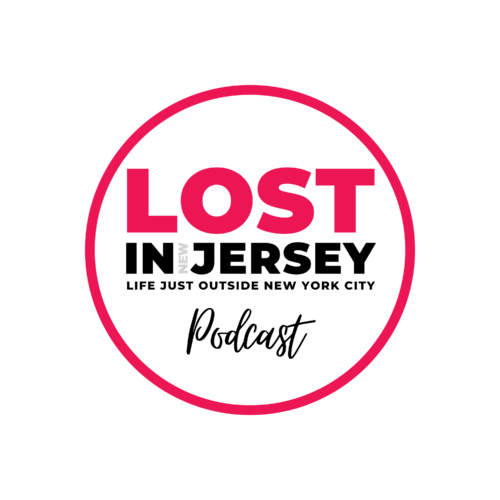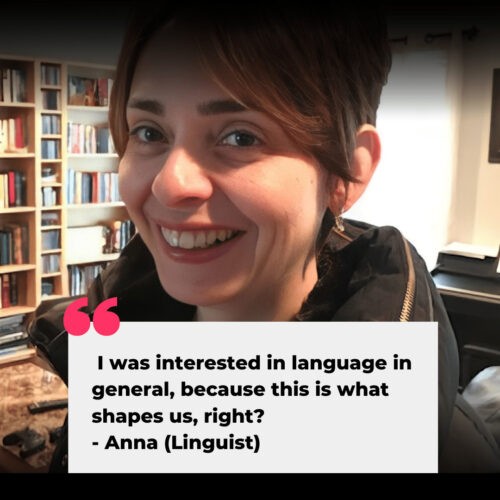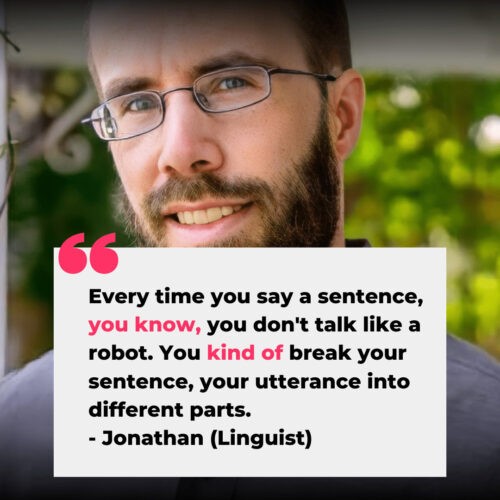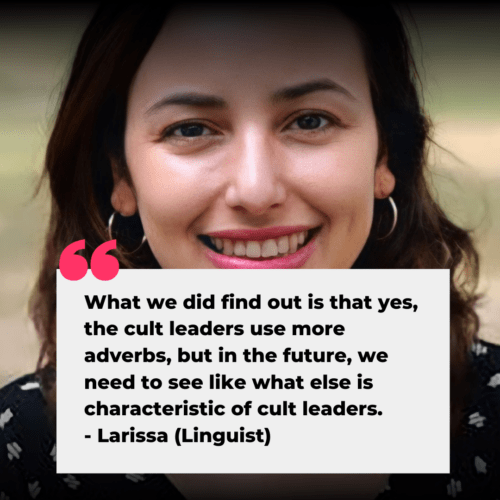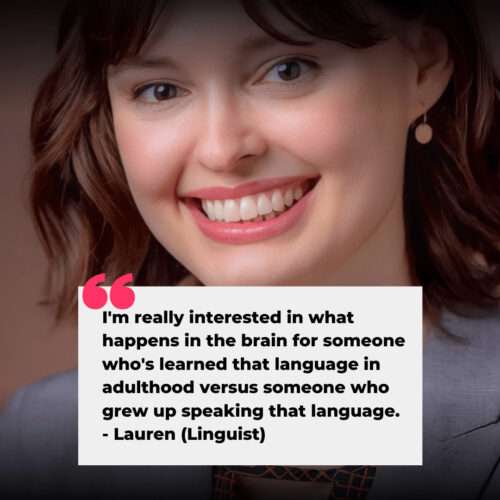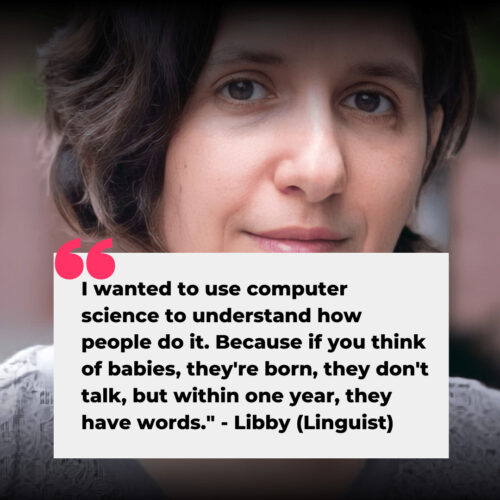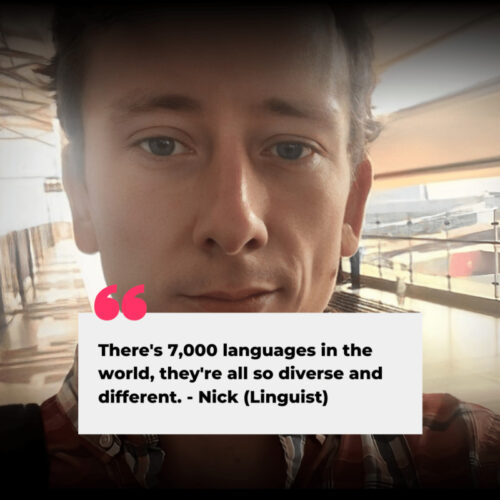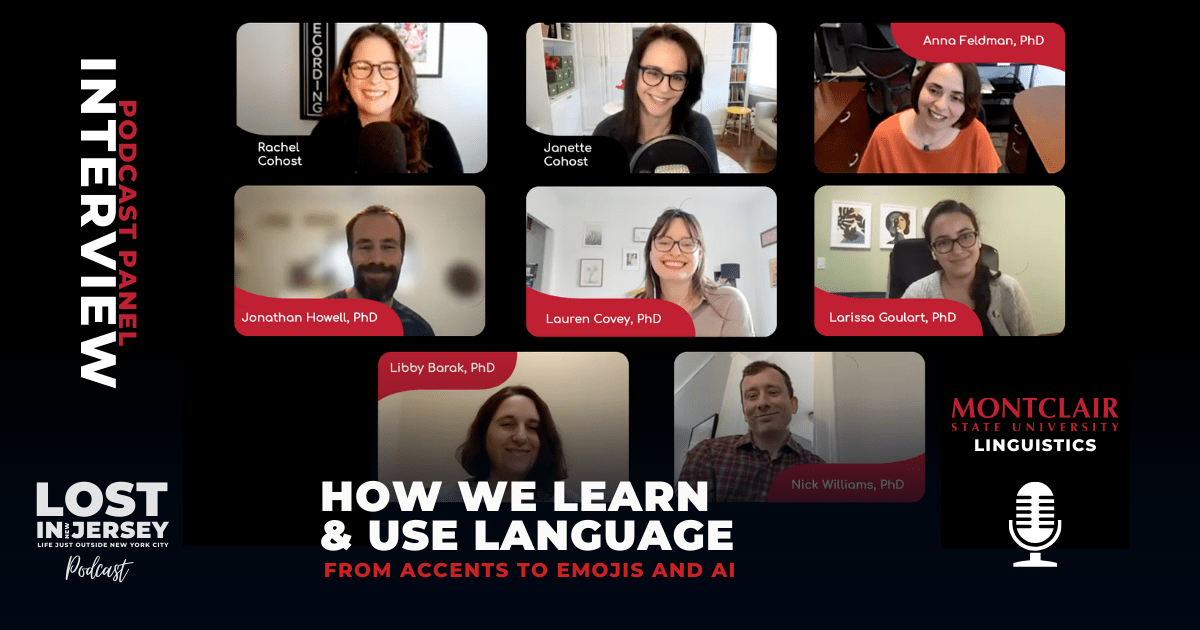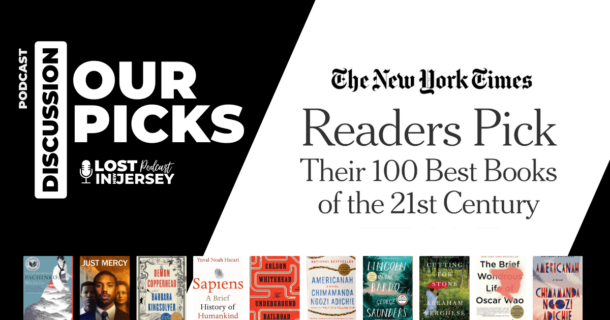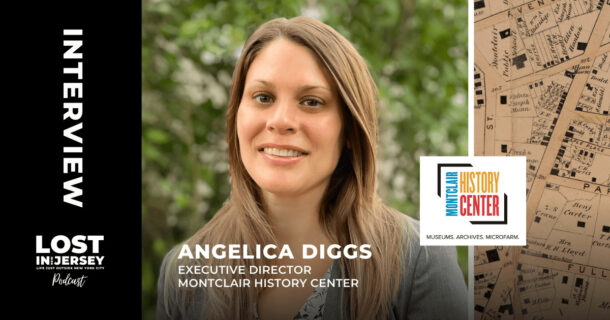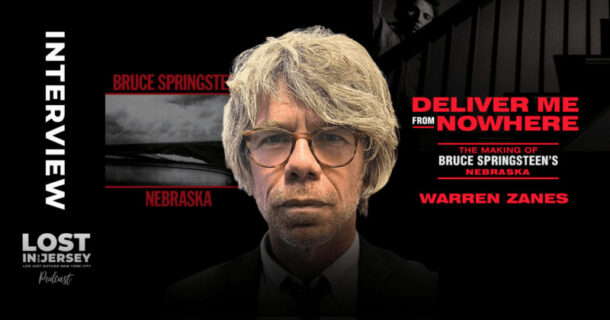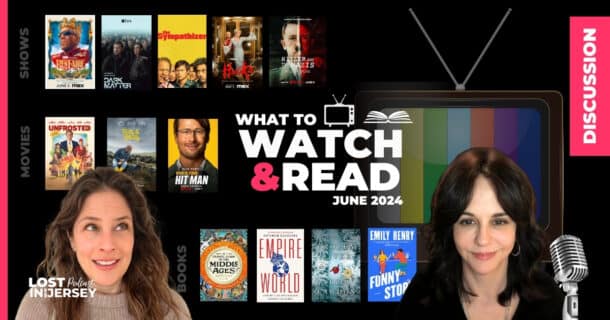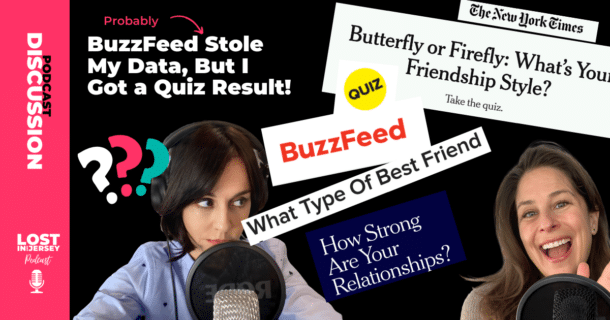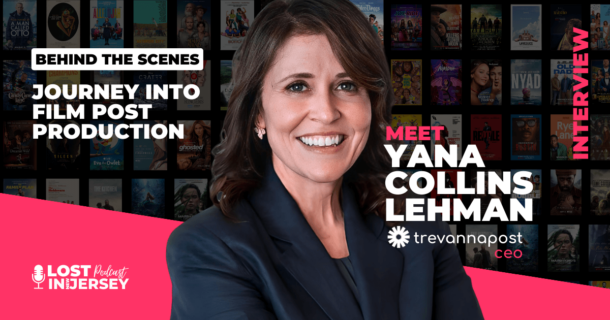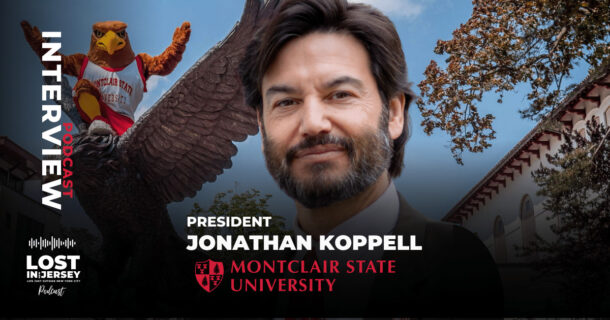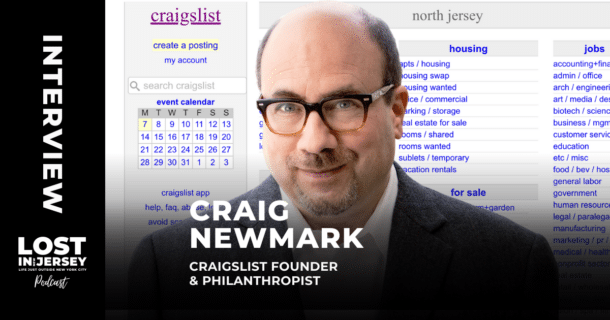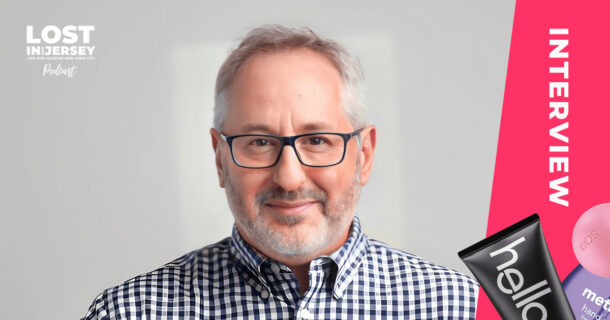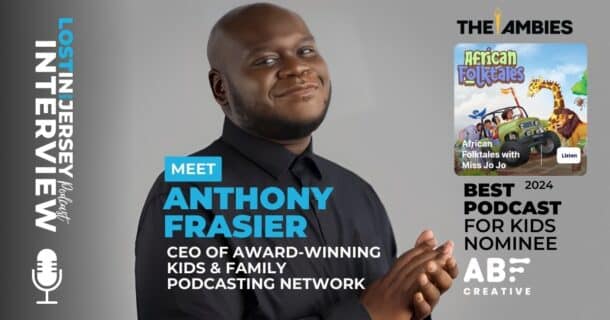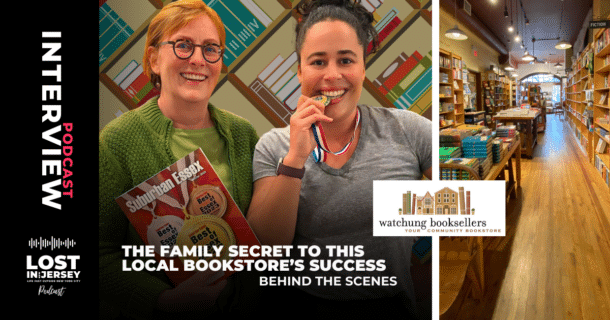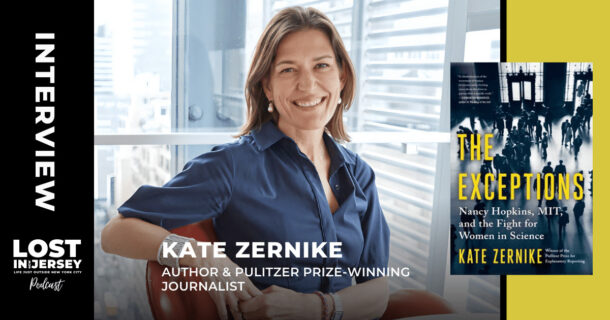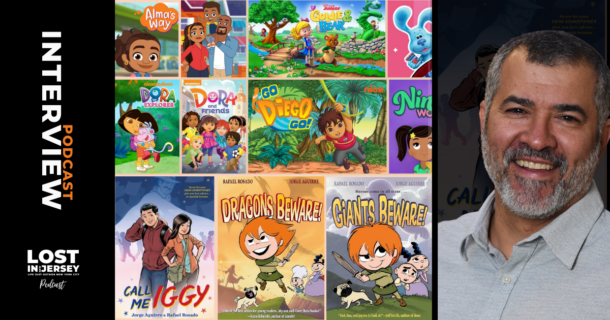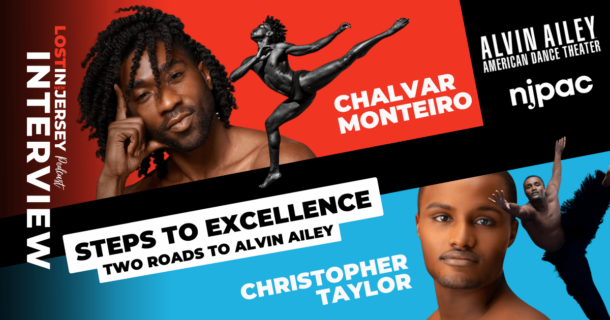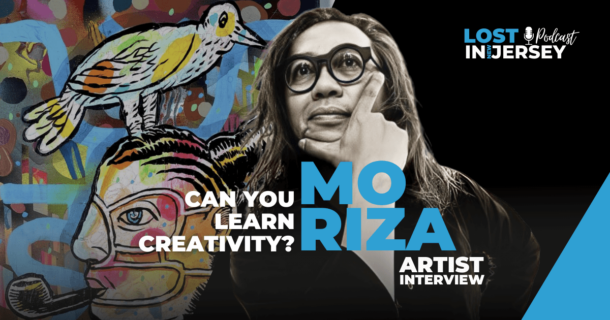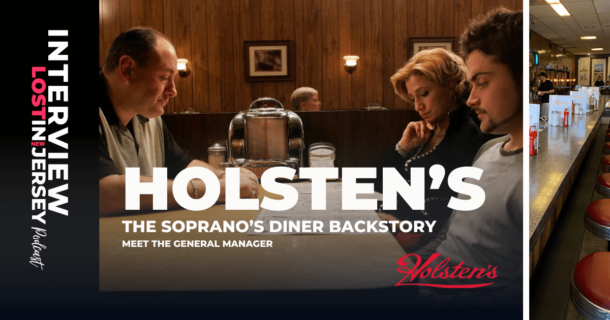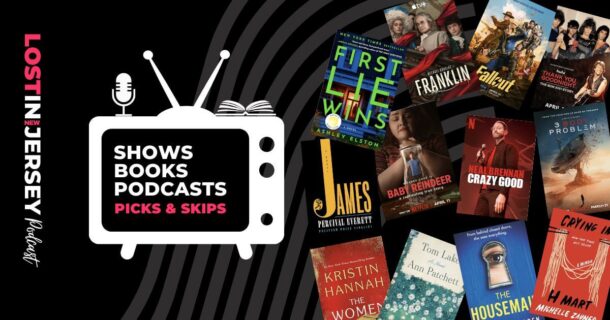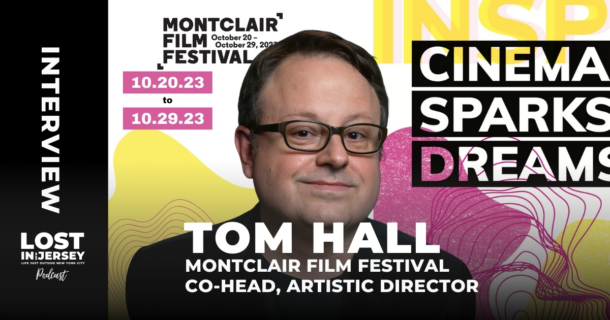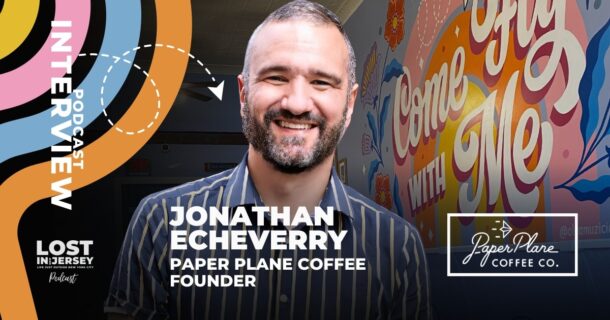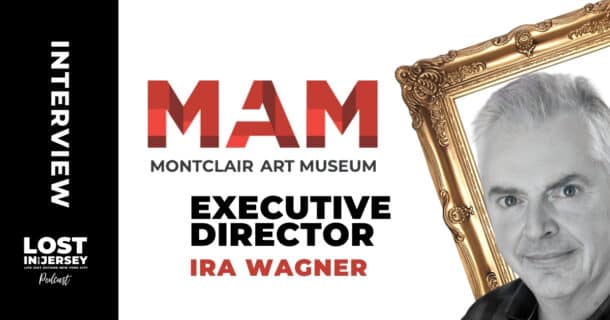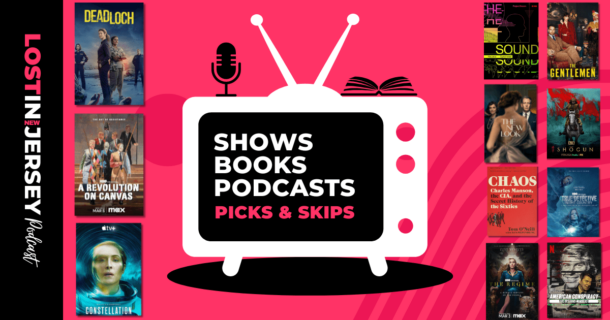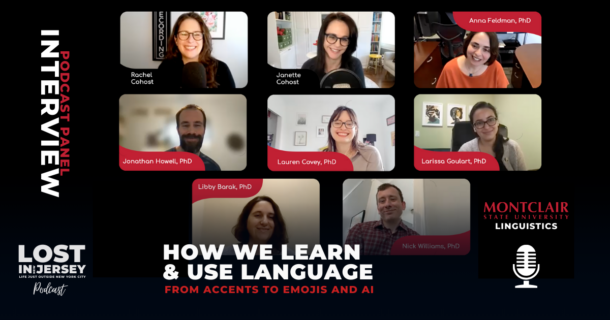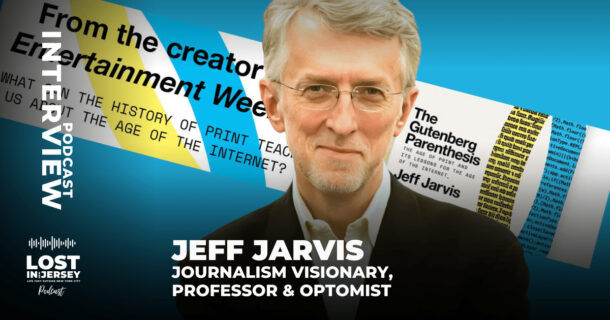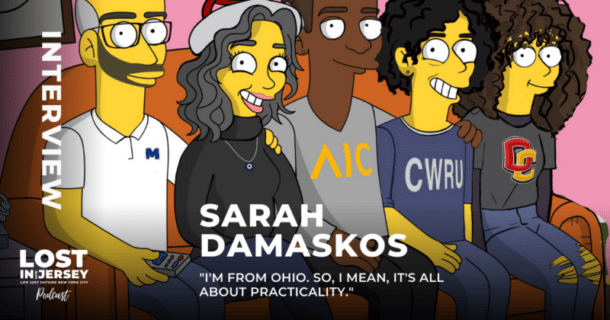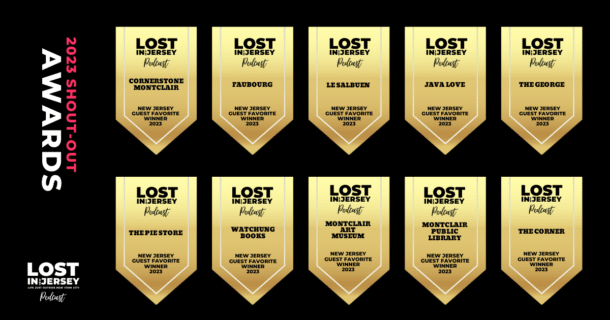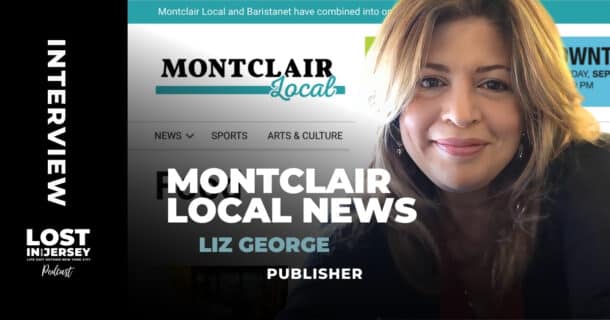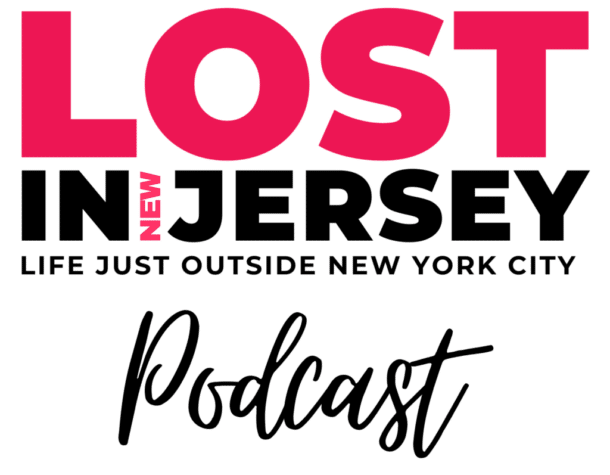HOW WE LEARN & USE LANGUAGE
What are VERY popular words among cult leaders? Why do some people learn a second language faster than others? How do babies learn to speak? How many languages does AI know? Tune in to find out!
In this episode, a panel of linguists from Montclair State University discusses their diverse research areas and the intersection of linguistics with AI and computer science. They delve into topics such as accents, phrasing, second language acquisition, and the use of emojis in different cultures. They share their backgrounds and how they became interested in their respective fields. We learn the importance of understanding individual differences in language learning and the need for collaborative and respectful approaches in language documentation. This is a conversation you don’t want to miss!
Also available on YouTube
Learn more about the Montclair State Linguistics Program at: https://www.montclair.edu/linguistics/
We are grateful to be joined by:
- Anna Feldman, Ph.D. Chair of the Linguistics Department at Montclair State University, specializing in computational linguistics and natural language processing.
- Jonathan Howell, Ph.D. Researcher in prosody and American dialects, exploring the patterns and nuances of speech.
- Lauren Covey, Ph.D. Investigating individual differences in second language acquisition and the cognitive factors that influence language learning.
- Larissa Goulart, Ph.D. Studying language use in writing, focusing on the differences between native and non-native speakers.
- Libby Barak, Ph.D. Combining computer science and linguistics to understand language acquisition and develop computational models for language learning.
- Nick Williams, Ph.D. Documenting endangered languages and studying the diversity of languages around the world.
- Other department faculty mentioned in this episode are
- Longxing Wei, Ph.D. works on modeling bilingual mental lexicons
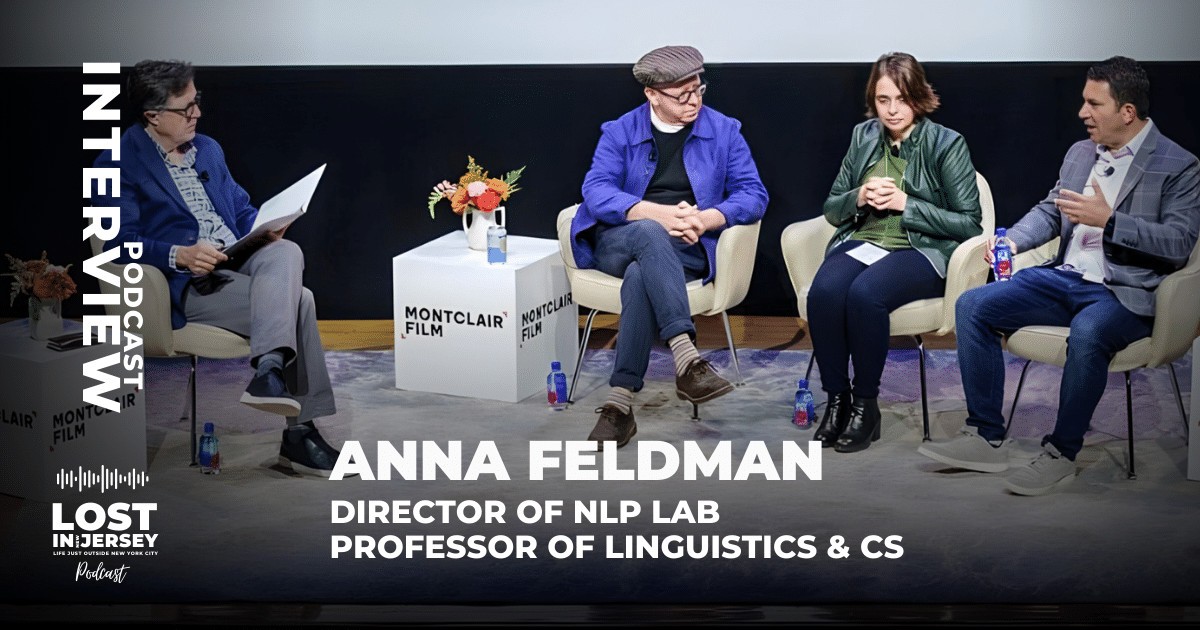
Shout Outs
Union City, NJ
Congregation Beth Chaim
Ironbound Neighborhood
Bloomfield Library
The Studio Players
Munsee Three Sisters Farm
Montclair Jazz Festival
Montclair Film Festival
Montclair Library
Montclair Book Center
PHOTO CREDIT: Montclair Film Festival. We saw Dr. Anna Feldman at the Montclair Film Festival Panel, “What Is The Future of Artificial Intelligence?” moderated by Stephen Colbert. During the panel, she provided a historical account of AI as it relates to linguistics and computer science. We learned a lot, and so will you.
Montclair State is one of the few universities in the country that offer a Master of Science in Computational Linguistics – and the only university in New Jersey.
LINKS TO CHECK OUT
- NLP LAB’s Twitter account: https://twitter.com/lab_nlp
- NLP Co-organizing these events and tasks: https://sites.google.com/view/figlang2024 https://www.codabench.org/competitions/1959/
Episode Summary:
Introduction
In this episode we will delve into the fascinating field of linguistics through insights shared by a panel of linguists from Montclair State University. The panel consists of experts in various areas of linguistics, including computational linguistics, language acquisition, prosody, and more. Join us as we learn about their research, their experiences, and the intersection of linguistics with AI and computer science.
Unveiling the Complexity of Language
Computational Linguistics: Bridging Language and Technology
Anna Feldman shares her journey from a background in languages and linguistics to her current focus on computational linguistics and natural language processing. She highlights the practical applications of linguistic knowledge in AI and computer science.
Exploring the Melodies of Speech: Prosody and American Dialects
Jonathan Howell delves into the field of prosody, which encompasses intonation, rhythm, and stress in speech. He discusses how prosody plays a crucial role in conveying meaning and explores the variations in American dialects.
Unlocking the Secrets of Language Acquisition
Lauren Covey sheds light on the complexities of second language acquisition. She investigates individual differences in language learning and explores the cognitive factors that influence language acquisition.
Decoding the Language of Writing
Larissa Goulart focuses on college writing, examining the differences between native and non-native speakers. She explores how writing styles vary across different contexts and cultures.
Computational Modeling of Language Acquisition
Libby Barak discusses her work in computational modeling of language acquisition, both for first language and second language learners. She explores how computational tools can aid in understanding language learning processes.
Documenting Endangered Languages
Nick Williams shares his research on documenting endangered languages, emphasizing the importance of preserving linguistic diversity. He discusses the role of computational tools in collecting and processing language data.
Language in Action: Insights from the Panel
The panelists engage in a thought-provoking discussion on various topics, including the discourse of cult leaders, the use of emojis in different cultures, and the inner voice of bilingual individuals. They highlight the interdisciplinary nature of linguistics and the importance of understanding language in its cultural and social context.
Conclusion
The panelists from Montclair State University provide valuable insights into the field of linguistics, showcasing the diverse areas of research and the impact of language on various aspects of our lives. From computational linguistics to language acquisition and cultural linguistics, their work sheds light on the intricacies of language and its role in shaping our world.
